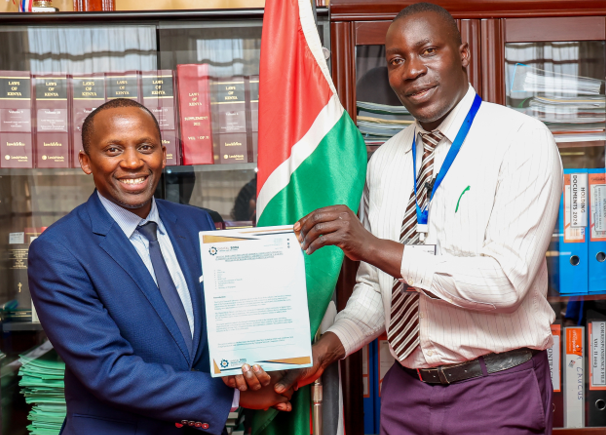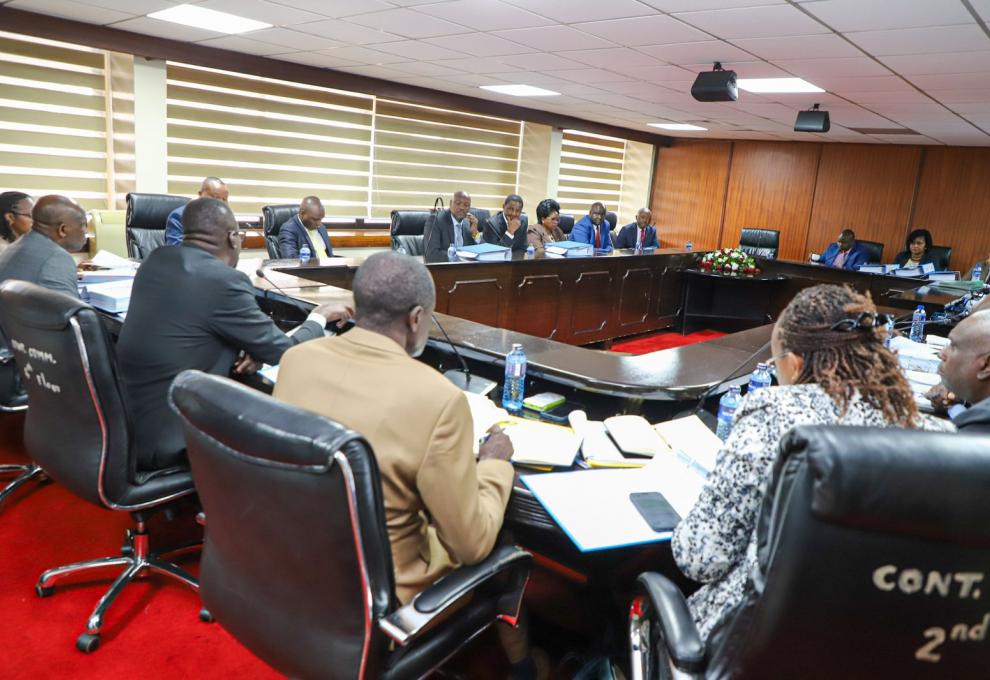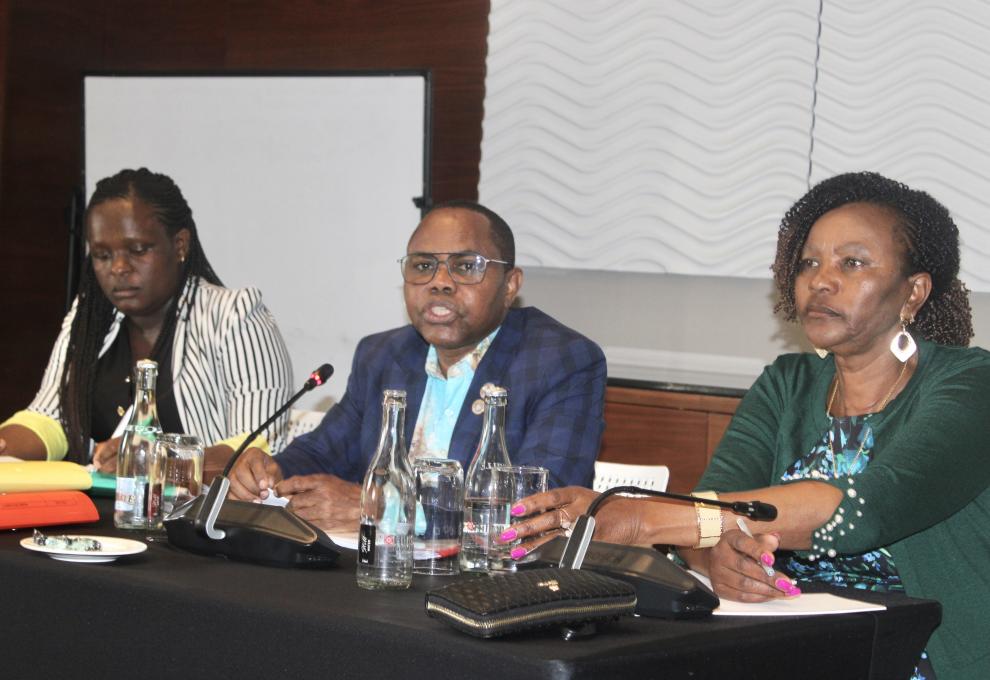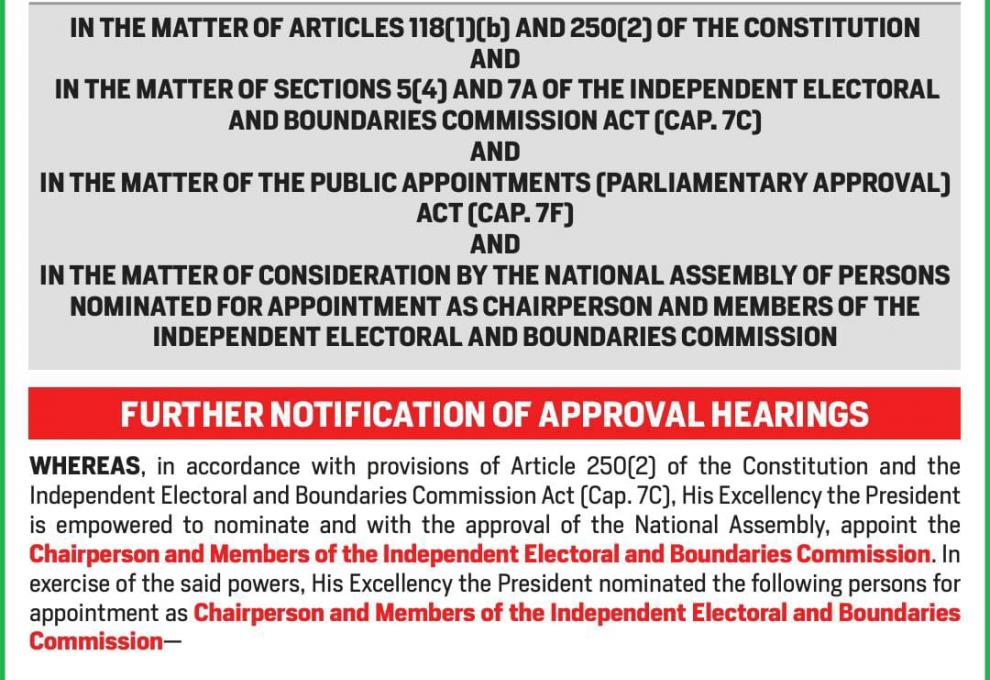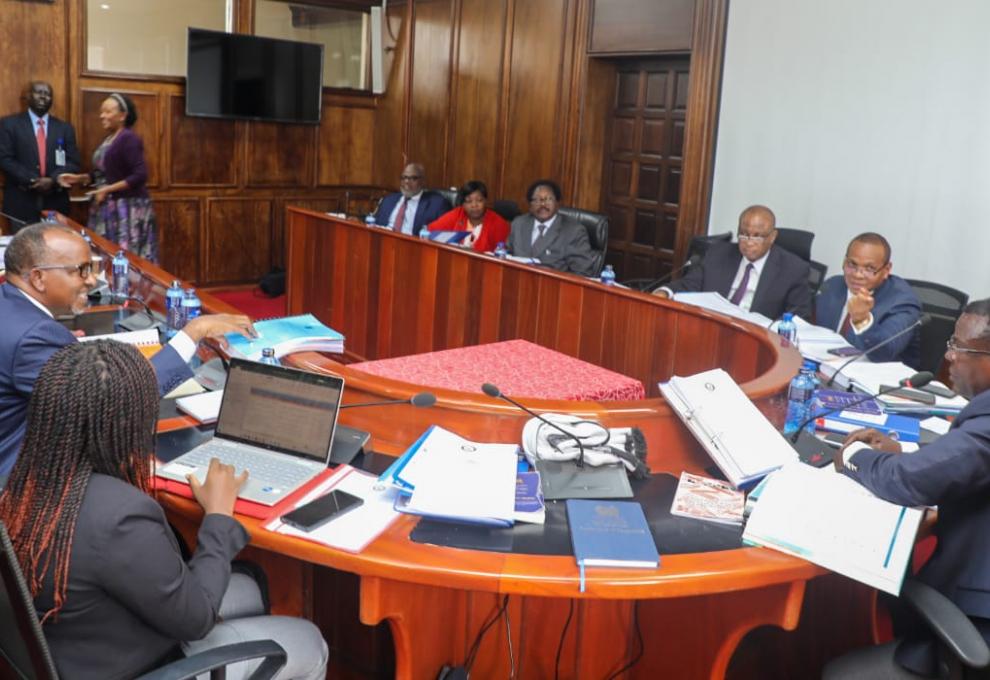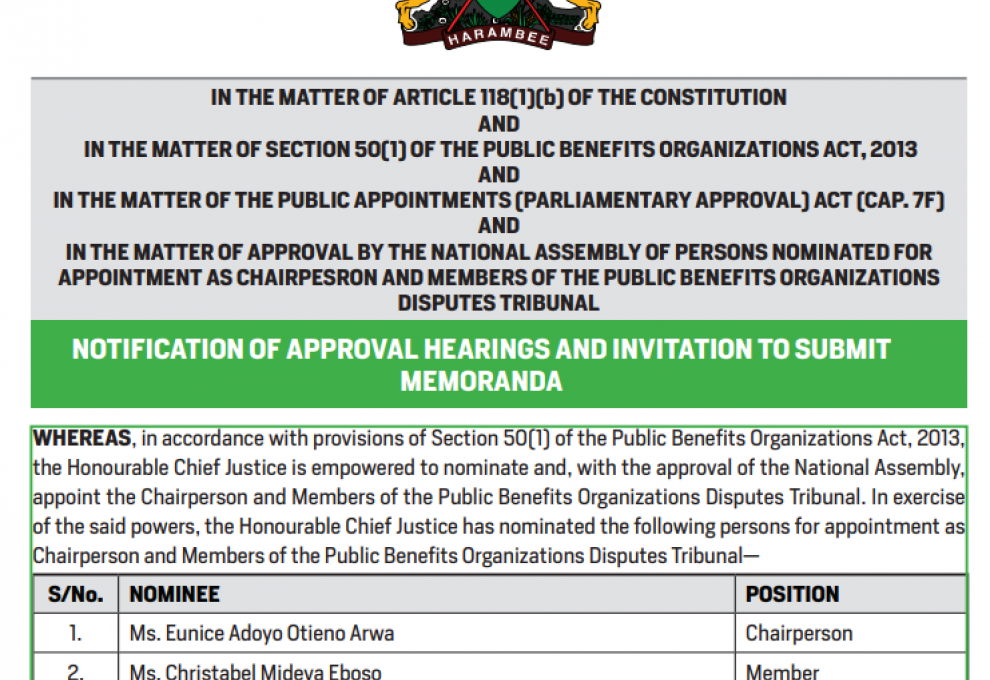CLERK RECEIVES PETITION FROM MOTORCYCLE E-HAILING SERVICE PROVIDERS SEEKING ENACTMENT OF LAW TO REGULATE SECTOR
The Clerk of the National Assembly has received a petition from the Digital Boda Drivers and Deliveries Association of Kenya seeking the enactment of legislation to regulate the sector and to protect them from exploitative tendencies.
Speaking when they met Mr. Samuel Njoroge in his Office, Association Members led by their Chairman, Mr. Calvince Okumu pointed out that their petition is intended to address key challenges faced by their Members.
As part of a roadmap to address these pitfalls, the Association is recommending the review of the NTSA (Transport Network, Owners, Drivers and Passengers) Regulations to include motorcycles as vehicles protected under the regulations.
They further want the amendment of the Public Transport (Motorcycle Regulation) Bill, 2023 (Senate Bill No. 38) to incorporate protections and facilitation of digital riders.
Key among the challenges they identified include: unfair working conditions, lack of legal protection, and oppressive practices by Transport Network Companies (TNCs).
“Currently, there is no substantive law governing digital riders. The TNC regulations in Kenya exclude motorcyclists from essential protections, and the Boda-Boda Regulations of 2015, do not address the digital component of the sector”, Mr. Okumu noted.
“This legal vacuum leaves digital riders vulnerable to exploitation and abuse. Whereas there is a Bill [The Public Transport (Motorcycle Regulation) Bill, 2023, Senate Bill No. 38] which is currently before the Senate, the Bill is wholly devoid of any provisions touching on recognition or protection of digital rider services”, he added.
Among the prayers sought from the National Assembly through the Petition, is the enactment of legislation that recognises digital riders as a unique sector of the transport industry with specific legal protections.
They also want the National Assembly to introduce regulatory measures for TNCs to ensure fair treatment of riders, including pricing, commissions and contract terms.
This includes a legal framework which facilitates the protection of riders' data and rights as workers in the gig economy.
Noting that the absence of a clear legal and regulatory framework had left riders vulnerable to exploitation and abuse, they called on the National Assembly to consider enacting laws and regulations to protect digital riders and ensure fairness in the operations with TNCs.
While receiving their Petition, Clerk Njoroge noted that the Association has a right to Petition Parliament, and assured them that the prayers sought would be considered by the House.
How Public Petitions are processed in the House
According to the Standing Orders, a petition to the National Assembly may be submitted to the Clerk by the petitioner and reported to the House by the Speaker or be presented by a Member on behalf of a petitioner, with the consent of the Speaker.
Within seven days after receiving the petition, the Clerk reviews the petition to ascertain whether it meets the requirements of the Standing Orders and the law.
Where the Clerk considers that a petition does not comply with the Standing orders or the law, the Clerk gives such directions as are necessary to ensure that the petition is amended to comply with the requirements.
However, if the Clerk is satisfied that the petition meets the requirements, the Clerk forwards the petition to the Speaker to authorize its tabling in the House.



